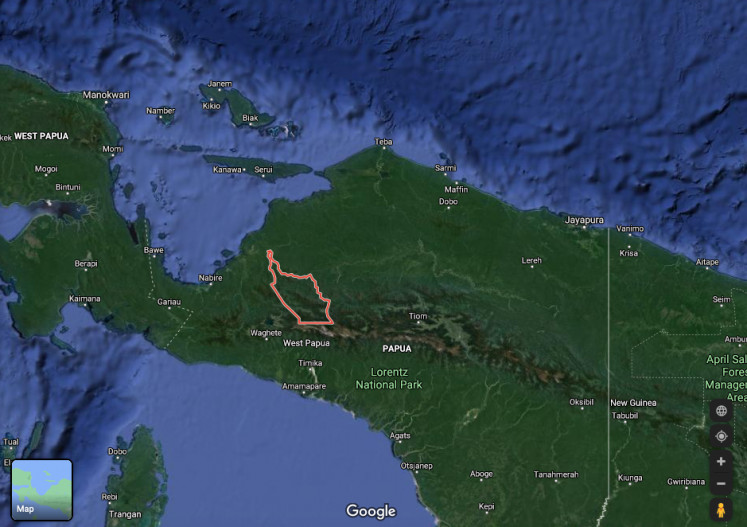PAL Jaya taps into recycling domestic wastewater
Jakarta-owned sewage company PD PAL Jaya president director Subekti said on Monday the company was trying out a new method to process wastewater into more environmentally friendly clean water
Change text size
Gift Premium Articles
to Anyone

J
akarta-owned sewage company PD PAL Jaya president director Subekti said on Monday the company was trying out a new method to process wastewater into more environmentally friendly clean water.
The new method — named Andrich and installed at Duri Kosambi Sewer Treatment Plant (IPLT) in West Jakarta — was cofounded by two researchers from Bandung Institute of Technology (ITB), Andri and Choirunnas.
The technique speeds up the process of breaking down wastewater into clean water and solid residue using chemical and physical processes.
“It takes us up to a week to recycle wastewater into clean water [using biological processes], while it only takes half an hour using the Andrich system. So it’s more efficient in both time and quality,” Subekti said.
“No, the clean water is not drinkable. It is indeed of higher quality — while clean water from the current process is usually flushed to the river, clean water from the Andrich method could be used for at least watering plants or toilet water,” he added.
PAL Jaya technical and business director Erwin Marphy Ali explained that drinking water and recycled wastewater had different standards, noting that recycled wastewater might still contain undesired bacteria such as E. Coli.
“No matter how clean recycled wastewater is, I’m not suggesting people drink it,” he said.
Recycled domestic wastewater, according to Environment and Forestry Ministerial Decree No. 68/2016 on domestic waste quality standards, should contain 30 BOD (biological oxygen demand) and 100 COD (chemical oxygen demand). The Andrich method, meanwhile, can do better than that, so it is safer for the environment.
“It’s still in the trial process. We’re awaiting permits from the Environment and Forestry Ministry, Health Ministry and Public Works and Housing Ministry so we can officially use the method in our septic tank facilities,” Erwin added, noting that the Andrich method’s investment value was up to Rp 1.5 billion (US$107 million).
PAL Jaya currently manages 300 cubic meters of domestic and stool wastewater in two IPLT facilities, in Duri Kosambi, West Jakarta, and in Pulo Gebang, East Jakarta. The wastewater is brought to the facilities from residential areas across the city using septic tank trucks.
The company has 31 septic tank trucks and there are 300 more trucks owned by private parties, each of which can carry up to 2 cubic meters of wastewater.
To support its efforts to develop better septic tank facilities, PAL Jaya also plans to improve its sewage pipe networks throughout the city.
Their only current wastewater treatment plant (IPAL) is located in Setiabudi, South Jakarta.
“We’ll build more IPAL facilities in 14 zones across Jakarta, which are expected to manage 80 percent of the total wastewater produced every day,” he added.
The installation of the additional pipes and the construction of the IPAL facilities, Subekti added, would begin in 2020 and were expected to be completed in 2050.
The project requires at least Rp 68 trillion.









